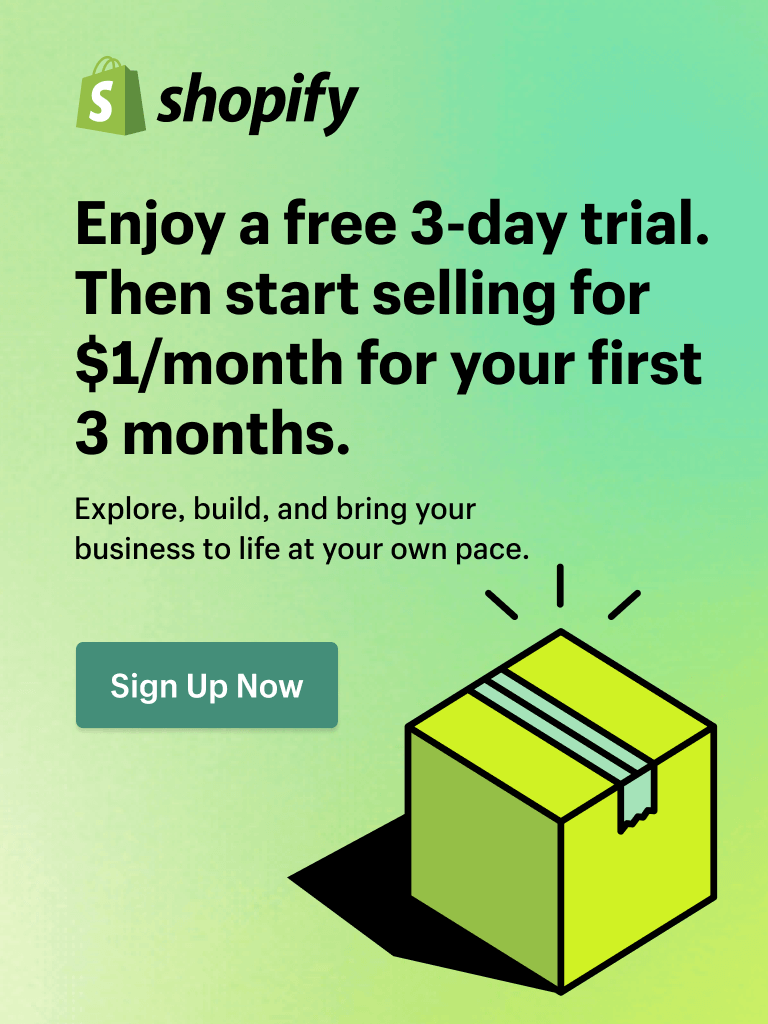According to a research by McKinsey & Company, 71% of consumers expect companies to deliver personalized interactions, 76% get frustrated when this doesn’t happen. This means that personalization has become a familiar and essential concept to many brands and shop owners in recent years.
Personalization can take place in many channels, from in-store to mobile app; but to achieve thorough personalization, website is a vital touchpoint. So what is website personalization and how can you apply it for your Shopify store?
What is web personalization?
Before digging into web personalization, let’s first clarify the basics. Personalization, simply put, is the act of tailoring an experience or communication based on information a business has learned about an individual.
A simple example of personalization is when you're entering your favorite pub, and the bartender already knows your taste and recommends you some beverages. This experience makes you feel special and tells you that you're recognized and cared for.
Regarding personalization, some core channels that brands should pay attention to are in-store interaction, emails, mobile apps, and social media. But above all, as an eCommerce brand, the website is the most important channel to personalize.
Web personalization refers to the process of providing each site visitor with a unique, customized experience rather than giving everyone a generic, one-size-fits-all interaction with your brand.
For example, Spotify tracks songs their audiences have recently listened to and analyzes music genres they like. Then it creates Daily Mix Playlists for its audiences every day, including recently-listened songs and related tracks. The feature ensures that users can always find music that appeals to them.

However, remember to be personalized, not creepy. Web personalization may be an excellent tool to enhance customer experience but there is a fine line between personalization and stalking. You shouldn’t cross this line and scare your customer.
The story of Target will be a lesson for you. They crawled and analyzed data of a customer to find out she was pregnant and send her offers for baby stuff. They even knew that this girl was pregnant before her father, which creeped many customers out.
You can follow this article to ensure that you’re on the right track when personalizing a website.
What are the benefits of web personalization?
Increase user engagement
One of the most significant benefits of web personalization is increased user engagement. 54% of marketers worldwide reported better engagement because of increased personalization efforts.
When visitors find relevant content on your website, they tend to click on, take a look at or even interact with it. This content can also become a reason for them to explore the website and engage with your products. Thus, personalized content will encourage users to stay on your website longer and engage more with your website.
Higher conversion rate
It’s proved that Call-to-Action tailored to an individual convert 202% better than normal ones. Not only CTAs, personalized recommendations also increase conversion rate by about 8%. Thus, better web personalization can result in higher conversion rate.

By delivering personalized content like recommended products or smart CTAs, you can streamline the customer journey on your website, making it easier to pursue users to complete your desired action. This action can be clicking on exploring, or even purchasing your products.
Take Philips as an example. They wanted to improve the conversions and AOV of its mobile users. To do this, Philips implemented Smart Recommender, a tool designed to deliver highly contextual product recommendations based on past behavioral data and user preferences. The final result is a 40.1% increase in conversion rate on their mobile web!
Enhanced brand loyalty
It’s claimed that personalization is the holy grail of loyalty.
When visitors receive personalized content or product recommendations based on their browsing history and preferences, they will feel that a brand knows and values them. It's human nature to love being valued and understood, so this personalized experience creates an emotional connection and increases the chances of repeated visits and purchases.
Therefore, consumers are more loyal to brands with great web personalization and they are more likely to recommend them to others.
3 ideas to make your Shopify stores more personalized
Use dynamic content
Dynamic content is content that changes based on user signals that include in-session behavior, user data, and user-characteristics. A dynamic content on your website may be a greeting or a promotion message which changes its content according to the customer data such as name or geo. For example, Amazon greets returning customers by their first name, or Columbus asks customers to change to its appropriate country’s website by geo-location.

The key of personalization is to create a tailored experience to make customers feel like they’re being treated like a person, not a number. Alos, 67% of consumers say it’s important for brands to automatically adjust their content based on their current context for a real-time personalized experience. Thus, dynamic messaging will be a beneficial method for web personalization.
So how to create dynamic content for your Shopify store? The easiest way is finding the assistance from these Shopify apps.
-
Optimonk: This is a toolset that allows you to create truly personalized dynamic content. It enables you to tailor headlines or any text element of your website content to your audience’s interest, location, or behavior, so they will change based on who is looking at them.

- Cooee: With its Magic Variables feature, you can create and customize dynamic content like greetings, offer messages based on customer’s name and time.
- Dialogue: This app enables you to customize offer messages for different user segments based on their unique characteristics like time/day, location, first-time vs. returning visitors.
- Claspo: A no-code widget builder with 1000+ templates for popups, banners, and multi-step forms. It lets you add personalized offers, gamified elements, and behavior-based targeting to boost engagement and sales.
Provide personalized recommendations
The research points out that personalizing product recommendations can improve cart abandonment by up to 4.35%. And it also shows that AOV of sessions that engage with product recommendations multiplies by 369%.
Besides, product recommendations also significantly affect the shopping decision of customers. 91% of consumers say they are more likely to shop with brands that provide offers and recommendations that are relevant to them.
We can see Amazon as an example. They did a marvelous job on personalizing product recommendations and the result is 35 percent of what consumers purchase on Amazon come from product recommendations.

Thus, product recommendations is also a section that needs personalizing on your website.
Personalizing product recommendations can be an effortless process if your Shopify theme already has this feature. Some Shopify themes like Minimog and Zest have recommended products sections that display complementary and related products to customers on your product pages.
To create this section with theme settings, first, you just need to make some adjustments on the Shopify Search & Discovery. You can read the full guideline of Shopify about customizing this section here. After you make suitable adjustments on the Shopify Search & Discovery app, come to your theme and directly add this section to your store.

If your theme doesn’t include this feature, you still can create personalized product recommendations with Shopify apps. Here are some recommendations for you:
-
Wiser ‑ Product Recommendations: This app makes use of an AI-powered recommendation engine to personalize shopping experience by customer. It tracks shopper's on-site behavior, purchase history, and items search to create product recommendations for each visitor.

- Shop Quiz: Product Recommender: This app is useful to create product recommendations for new visitors who leave no footprint to track on your store. Shop Quiz asks your customers questions, analyzes their responses and recommends the right products for them.
- Also Bought • Related products: This app analyzes your store's full sales history, new orders and product updates in real-time to create “Customers Who Bought This Item Also Bought” recommended products.
Provide personalized delivery experience
Crafting personalized delivery experiences goes beyond enhancing the customer journey; it actively contributes to building a more personalized website. When customers have the ability to tailor their delivery options, it adds a layer of customization that resonates with them on a personal level. This, in turn, fosters a sense of connection and loyalty.
Create a personalized delivery experience seamlessly for your customers using Shopify delivery and shipping apps, with DingDoong: Delivery + Pickup app being our top pick. DingDoong empowers your customers to take control of their delivery or pickup preferences, allowing them to choose specific time and date slots that align with their unique needs. Try out Dingdoong for yourself today and see the difference!

Use AI-powered chatbots
AI chatbot is a great option for brands without a robust customer service team. An AI chatbot can provide support and suggestions based on the user’s inputs. Thus, it not only can collect customer data but also deliver better personalized experiences.
For example, Maqio Toys uses an AI chatbot to not only answer customer service questions but the tool also suggests sales and makes personalized recommendations. Happy to Meat You’s AI app detects when a user may be leaving the site and delivers a pop-up offer prompting them to stay.

To set up an AI chatbot on your Shopify store, you can refer to these apps:
- Tidio: This app provides NLP-based chatbots that can give the right product recommendations to potential customers
- Crisp: This app lets you craft your own chatbot using their chatbot API. Available in 5 different API libraries, their chatbot software can easily connect to your data. You can also simply connect a third-party NLP tool such as Dialogflow to make it even smarter.
- Relish AI: Relish AI chatbot asks customers and visitors relevant questions to understand customer needs and preferences to deliver personalized answers and recommendations.
In summary
Along with the development of ecommerce, most businesses take web personalization as their approach in the customer-centric era. As a growing Shopify merchant, website personalization should also be a priority for your business as it can bring you great benefits.
With this article, we hope that you can have a deeper insight of website personalization and find the suitable ideas to properly personalize your website. And if you’re looking for a theme which is optimized for personalization, look no further than our Minimog.






